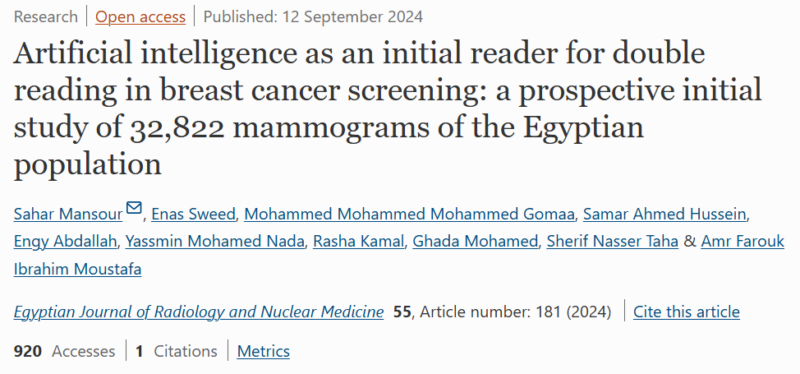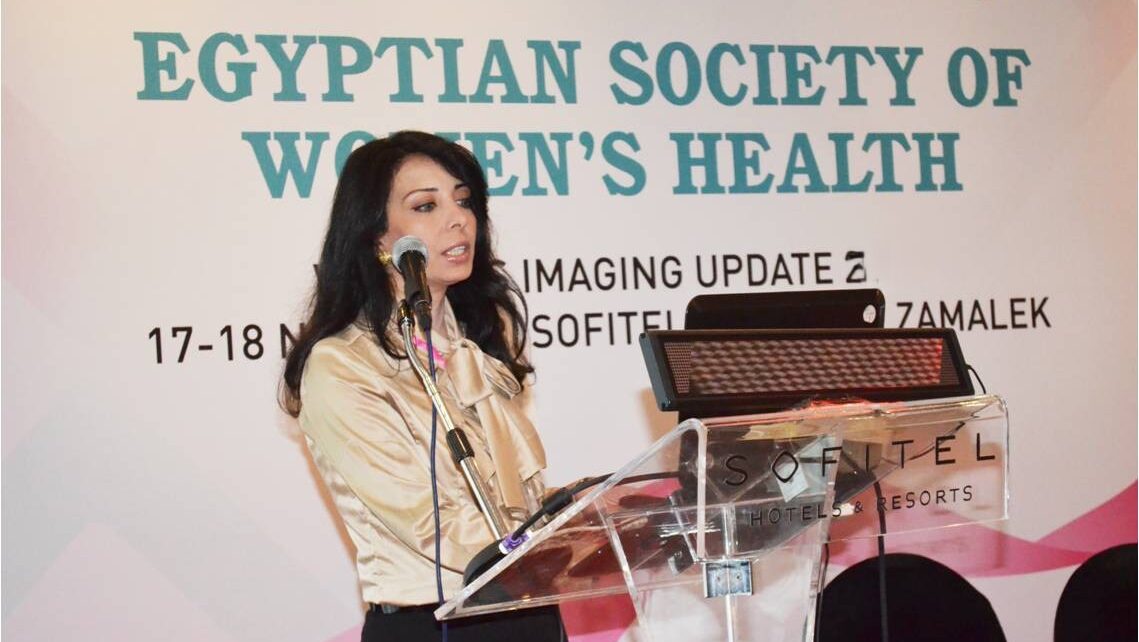Sahar Mansour, Professor of Radiology in the Women’s Imaging Unit at Kasr El Ainy Hospital, Cairo University, shared a post on LinkedIn:
“Revolutionizing Breast Cancer Screening in Egypt: A Journey with AI
In the realm of healthcare, innovation is not just a luxury – it’s a necessity. Over the past year, I embarked on a groundbreaking initiative in Egypt, leading the first-ever activity of integrating artificial intelligence (AI) into the mammography screening process for breast cancer.
This initiative analyzed an impressive 32,822 mammograms, marking a significant step forward in early detection and patient care.
The integration of AI as an initial reader in the double-reading process brought remarkable results. By pairing AI with a radiologist, we achieved a sensitivity of 94.03% and an accuracy of 99.37%. These numbers are not just statistics; they represent lives potentially saved through earlier detection and more precise diagnoses.
The AI system provided heatmaps and abnormality scores, enhancing our ability to identify subtle signs of cancer that might have been overlooked.
Notably, this study was published in September 2024, further validating the rigor of our work. The main strengths of this initiative included:
Data Reproducibility: Mammogram findings and AI scoring values were cross-referenced with the histopathological results from surgeries, ensuring robust and reliable data.
Diverse Population Analysis: The FDA-approved AI solution, ‘Lunit INSIGHT,’ originally developed in Korea and trained on a European/East Asian ethnic population, was successfully applied to a Middle East African population, highlighting its versatility and adaptability.
You can access the published study: Artificial intelligence as an initial reader for double reading in breast cancer screening: a prospective initial study of 32,822 mammograms of the Egyptian population | Egyptian Journal of Radiology and Nuclear Medicine.
However, this journey was not without its challenges. Implementing AI in a clinical setting required meticulous planning, training, and a commitment to ensuring that the technology complemented, rather than replaced, the expertise of radiologists.
Personally, stepping into uncharted territory as the pioneer of this activity in Egypt came with its share of obstacles – from navigating the logistics of integrating AI into existing workflows to addressing skepticism about its effectiveness.
Educating healthcare professionals about the capabilities of AI and ensuring the technology was used as a tool to enhance, not replace, their expertise was a rewarding but demanding task. The results, though, speak volumes about the potential of AI to transform healthcare in Egypt and beyond.
This experience has been a testament to the power of perseverance and collaboration – between technology and human expertise, between innovation and tradition. As I reflect on this journey, I am optimistic about the role AI will continue to play in improving healthcare outcomes, not just in Egypt but globally.”
Authors: Sahar Mansour, Enas Sweed, Mohammed Mohammed Mohammed Gomaa, Samar Ahmed Hussein, Engy Abdallah, Yassmin Mohamed Nada, Rasha Kamal, Ghada Mohamed, Sherif Nasser Taha and Amr Farouk Ibrahim Moustafa.

More posts featuring Sahar Mansour.


